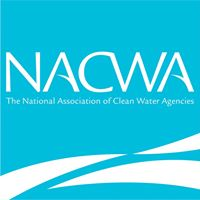President Signs Integrated Planning Bill into Law, NACWA Touts Greater Long-Term Certainty for Clean Water Investments in Communities
Enables Safer, More Affordable and Reliable Clean Water Services for All
WASHINGTON, D.C. – (RealEstateRama) — The National Association of Clean Water Agencies (NACWA) applauds the President’s signing of the Water Infrastructure Improvement Act into law on January 14 2019. This bill codifies the US Environmental Protection Agency’s (EPA’s) Integrated Planning (IP) approach into law, providing local communities with critical new flexibilities in meeting their Clean Water Act (CWA) obligations. IP will allow clean water agencies to do even more to protect public health and the environment by targeting limited ratepayer dollars to achieve CWA compliance as effectively as possible.

Thanks to advocacy efforts by NACWA, the US Conference of Mayors, the National League of Cities, the National Association of Counties, the Water Environment Federation, and other groups, EPA recognized the regulated community’s need for flexibility and developed its Integrated Municipal Stormwater and Wastewater Planning Approach Framework in 2012. Since then, NACWA and its municipal and water sector partners have been working with Congress on bipartisan legislation to codify the IP Framework into law.
NACWA greatly appreciates the leadership shown by the House Transportation and Infrastructure Committee, led by Chairman Bill Shuster (R-PA) and Ranking Member Peter DeFazio (D-OR), and the Senate Environment and Public Works Committee, led by Chairman John Barrasso (R-WY) and Ranking Member Tom Carper (D-DE) in getting this critical legislation to the President for his signature.
“As public clean water utilities and the communities they serve continue to face increasing water quality and affordability challenges each day, codifying Integrated Planning helps communities better sequence and prioritize, in a holistic fashion, how they comply with their clean water permit obligations,” said Adam Krantz, NACWA’s Chief Executive Officer. “Enactment of this legislation is a major win for clean water utilities large and small across the country, enabling them to better provide their residents with safer, more reliable and affordable public clean water services.
“Getting this important legislation passed was a true bipartisan effort involving many. NACWA particularly thanks Representatives Bob Gibbs (R-OH), Grace Napolitano (D-CA), and Bob Latta (R-OH) from the House, and Senators Deb Fischer (R-NE), Sherrod Brown (D-OH), Rob Portman (R-OH) and Ben Cardin (D-MD) from the Senate for their strong leadership on this issue and tireless efforts in getting this bill to the President’s desk, and the President for signing it into law. Because of them, public utilities will now have greater long-term regulatory certainty when planning the water infrastructure needs of their communities—which in turn touches all Americans who use clean water daily.”
NACWA would like to recognize the following Members of Congress as well for their vital support in advancing this important legislation: Senator John Boozman (R-AR) Representatives Steve Chabot (R-OH), Cheri Bustos (D-IL), Dave Joyce (R-OH), and Marcia Fudge (D-OH).
Legislation Provides Important New Environmental Flexibilities and Programs for Clean Water
Since 2012, EPA’s IP Framework has been an important tool that has provided public clean water utilities and the communities they serve the opportunity to develop integrated management plans to better sequence and prioritize their specific CWA obligations and investments. Allowing communities to have better control over how they meet their permit obligations based on specific local infrastructure and environmental factors, as well as the needs of their ratepayers, is critical. Codifying the IP Framework gives public utilities greater long-term certainty to provide communities of all sizes with safe, reliable, and more affordable clean water.
The bill also establishes an office of Municipal Ombudsman within the EPA to provide municipalities with technical assistance to comply with CWA obligations, as well as ensure Agency policies are being implemented properly at the local level. Many communities, especially small and rural communities, often have insufficient technical capacity and expertise to manage the increasingly complex regulatory nature of the compliance obligations before them. This new office will serve as an important conduit between the Agency and local governments to ensure technical support is being provided at the local level to navigate these statutory requirements, and ensure compliance to avoid unnecessary violations.
Lastly, the bill also includes provisions to ensure that EPA integrates the use of green infrastructure throughout its CWA compliance programs. As communities continue dealing with aging infrastructure and increasing water quality challenges, green infrastructure can provide a cost-effective, environmentally friendly tool to help better manage wastewater and stormwater.
###
Media Contact
Tony Viardo
NACWA | Director, Communications & Marketing
(202) 258-8287 |
http://www.nacwa.org/
About NACWA
For nearly 50 years, the National Association of Clean Water Agencies (NACWA) has been the nation’s recognized leader in legislative, regulatory and legal advocacy on the full spectrum of clean water issues. NACWA represents public wastewater and stormwater agencies of all sizes nationwide. Our unique and growing network strengthens the advocacy voice for all member utilities, and ensures they have the tools necessary to provide affordable and sustainable clean water for all. Our vision is to represent every utility as a NACWA member, helping to build a strong and sustainable clean water future. For more information, visit us at www.nacwa.org.













